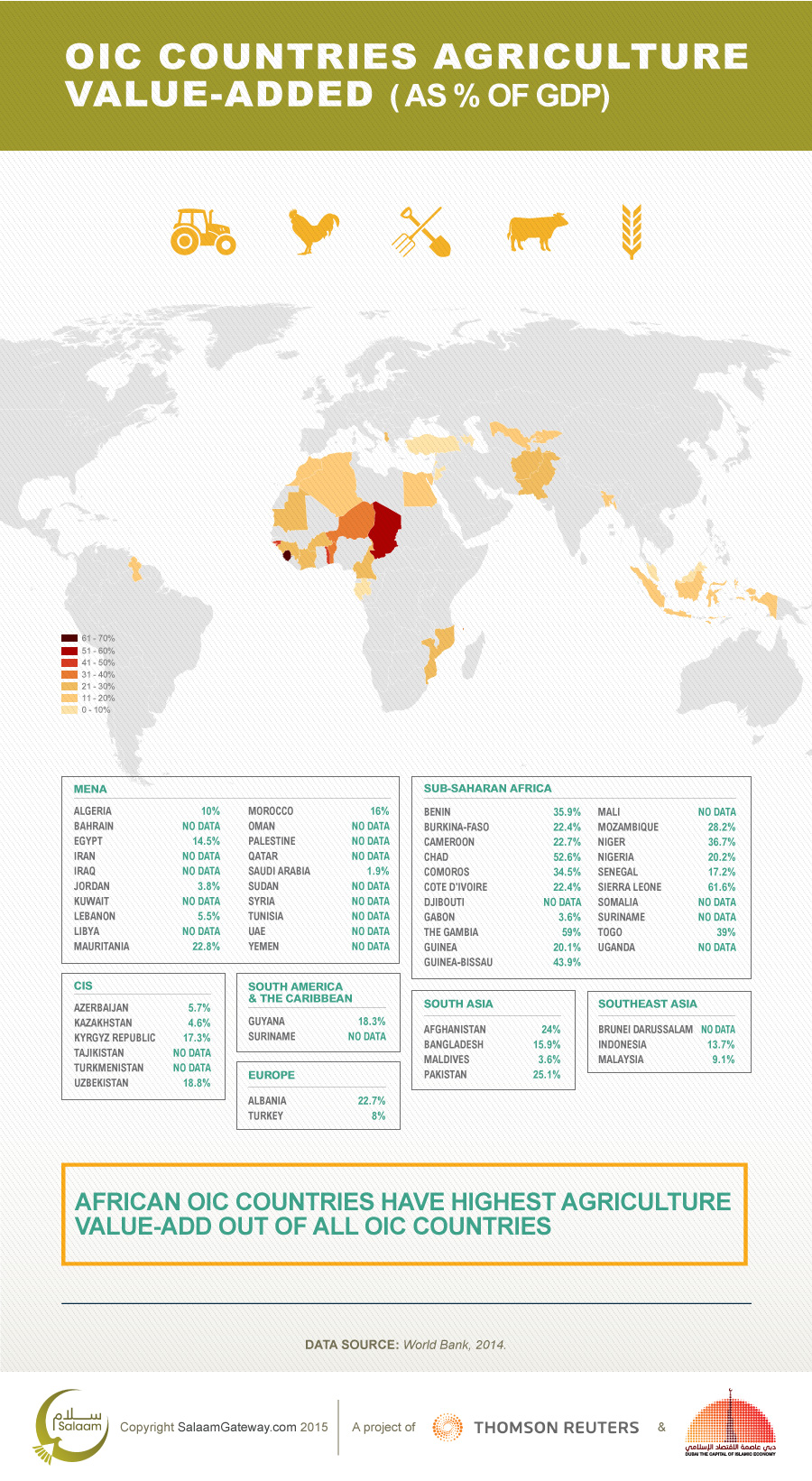Agriculture crucial for economies of Sub-Saharan Africa OIC countries
Agriculture in the Organisation of Islamic Cooperation member states is at once linked to food security and rural development. These three inter-linked issues are considered critical to the OIC in ensuring member states' economic sustainability and overall well-being of citizens. These issues have been addressed as part of the OIC 10-year programme of action 2005-2015 (whose implementation report was submitted in November 2014).
In 2013, the OIC Council of Foreign Ministers approved the Statute of Islamic Organisation for Food Security (IOFS) as recommended by the Expert Group Meeting held in Astana, Kazakhstan in June of the same year. The IOFS is a specialised OIC institution based in Astana specially created to coordinate and implement OIC policies on agriculture, rural development and food security.
Sub-Saharan Africa OIC countries have the highest agriculture value-add among all OIC countries and are hence of particular importance for the IOFS.
Of the OIC African group, Sierra Leone has the highest agriculture value add -- 61.6 percent, according to World Bank 2014 data. The country's poverty level is significant -- nearly 53 percent of the poulation lives on less than $1.25 a day, according to the World Bank. In Sierra Leone, inadequate infrastructure, including erratic electricity supply and bad roads that affect farming, is a mjor impediment to food security.
Other Sub-Saharan Africa OIC countries, including Chad and Guinea-Bissau, have similar challenges.
